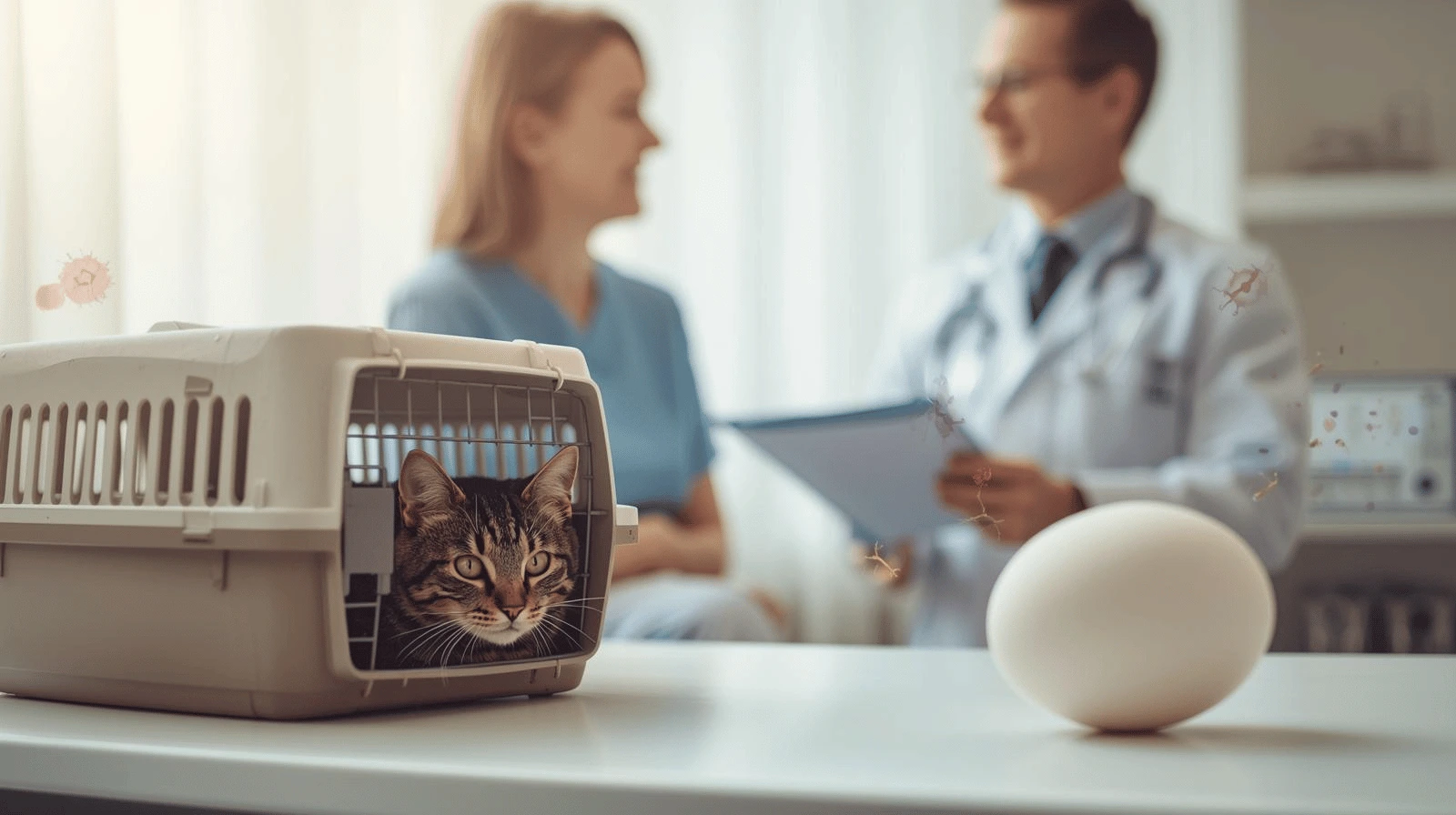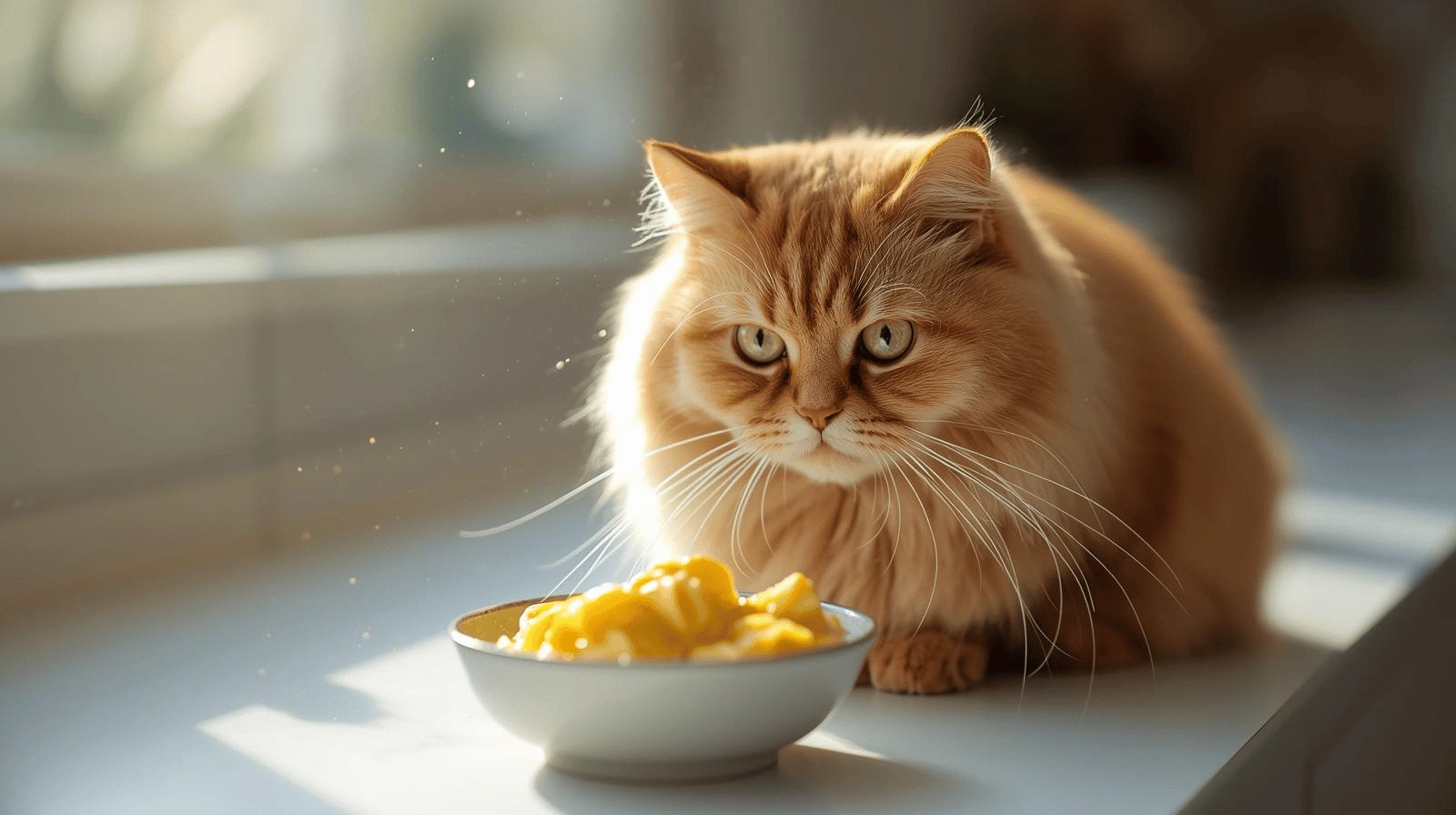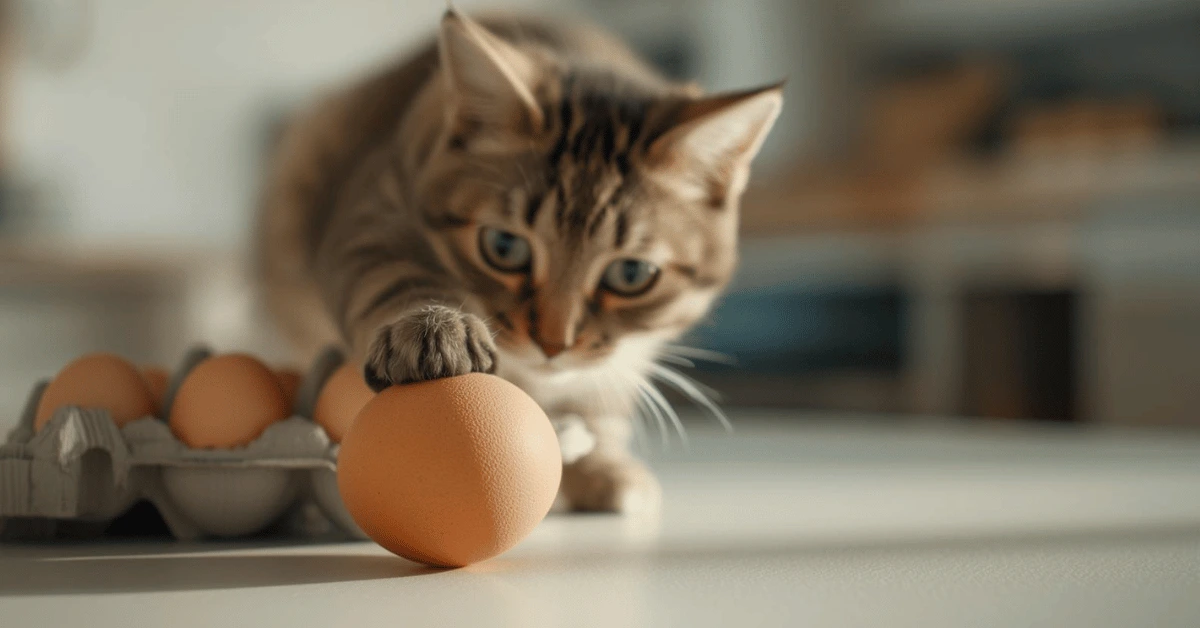Cats are obligate carnivores, meaning they thrive on animal-based proteins. Because of this, some pet owners assume feeding raw foods — including raw eggs — might provide nutritional benefits. However, raw eggs for cats are controversial. While they do contain protein and vitamins, they also pose risks tied to bacteria, digestive upset, and nutrient imbalances.
The Nutritional Value of Eggs for Cats
Eggs are a nutrient-dense food, packed with proteins, amino acids, and vitamins. When properly prepared, they can complement a cat’s diet in moderation.
Benefits of Cooked Eggs for Cats
Cooked eggs can provide:
- High-quality protein for muscle development.
- Essential fatty acids to support skin and coat health.
- Vitamins like B12 and riboflavin for energy metabolism.
Why Raw Eggs Are Different
Unlike cooked eggs, raw eggs bring additional hazards. The risks tied to bacterial contamination and nutrient absorption far outweigh the potential benefits when served uncooked.
Related➡️10 Egg-Based Dishes Cats Can or Can’t Eat Safely
Health Risks of Feeding Raw Eggs to Cats
While eggs are not toxic in themselves, their raw form can negatively impact your cat’s health.
Risk of Salmonella and E. coli
Raw eggs may harbour harmful bacteria such as Salmonella or E. coli, which can cause:
- Vomiting and diarrhea 🤢
- Dehydration and lethargy
- More severe infections in kittens or older cats with weaker immune systems
Not only can your cat get sick, but handling raw eggs in pet food also increases food safety risks for humans in the household.
Nutrient Deficiency from Avidin
Raw egg whites contain avidin, a protein that binds to biotin (vitamin B7) and prevents its absorption. Biotin deficiency can lead to:
- Skin irritation and itchiness
- Hair loss or poor coat quality
- General weakness over time
Related➡️Why Do Cats Roll on the Floor When They See You?
Food Safety for Pets

Feeding cats raw animal products often introduces food safety concerns. Eggs, in particular, are risky because they are commonly linked to bacterial contamination.
Cross-Contamination Risks in the Home
If raw eggs are fed to pets, surfaces, utensils, or bowls can easily spread bacteria, posing a hazard not just to cats but to their human families.
Veterinary Recommendations
Most veterinarians strongly advise against feeding raw eggs to cats. According to Cornell University College of Veterinary Medicine, raw diets come with significant health risks, especially from pathogens that are eliminated by cooking.
Safe Alternatives to Raw Eggs for Cats
While raw eggs for cats may be unsafe, you can still provide eggs in a safer way.
Cooked Eggs as a Treat
Scrambled, boiled, or poached eggs (without salt, butter, or seasonings) can be given in small amounts. This ensures the nutrients are preserved without the bacterial dangers.
Other Nutritious Cat-Friendly Foods
Safer options that boost your cat’s diet include:
- Cooked chicken or turkey 🍗
- Small amounts of plain cooked fish
- Commercially balanced cat food designed to meet feline nutritional needs
Related➡️What Is Catnip? History, Science, and Why Cats Love It
Signs Your Cat May Have Eaten Raw Eggs
If your cat accidentally gets into raw eggs, watch for warning signs:
- Vomiting or diarrhea
- Loss of appetite
- Excessive grooming due to skin irritation
- Unusual fatigue or weakness
If symptoms appear, contact your veterinarian promptly to prevent complications.
Related➡️Can Cats Eat Rose Petals? Safety Facts for Pet Parents
Prioritizing Food Safety in Feline Diets

Although eggs are nutrient-rich, feeding raw eggs to cats carries clear risks. From bacterial infections to nutrient absorption issues, the potential harm outweighs any supposed benefits. Cooked eggs, in moderation, are a much safer option and can be an occasional treat for your feline friend.
Ultimately, food safety for pets should be a top priority. By avoiding raw eggs and choosing healthier alternatives, you’ll protect your cat’s long-term health while ensuring mealtime stays both safe and satisfying. 🐾

2 thoughts on “Should Cats Eat Raw Eggs? Vet-Backed Insights”